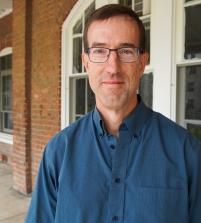Post-Zionism or Post-Judaism? — Brian Britt
Two radically different new films, the American comedy You Don't Mess With the Zohan and the Israeli dramaRestless, tell remarkably similar stories of Israeli soldier-assassins who start new lives in New York
Two radically different new films, the American comedy You Don't Mess With the Zohan and the Israeli dramaRestless, tell remarkably similar stories of Israeli soldier-assassins who start new lives in New York. By normalizing the image of soldiers and patriots leaving Israel, The Zohan and Restless (like Steven Spielberg's weightier Munich [2005]) both normalize the difficult questions of post-Zionism.
Restless, directed by Amos Kollek (son of the longtime mayor of Jerusalem), depicts the reunion of Moshe, a down-and-out Israeli poet in New York, and Tzach, the son he abandoned as a baby, now an elite sniper discharged from the Israeli Defense Forces. The Zohan, starring Adam Sandler (who also co-wrote and produced the film), resembles such willfully vulgar satires as Talladega Nights and Superbad. A renowned soldier and lover, Zohan gives up fighting terrorists to follow his dream of styling hair for Paul Mitchell in New York. When that fails, he goes to work for a Palestinian-owned hair salon across the street from Israeli shops. Like an inversion of the biblical Samson (a popular figure in Israeli culture), Zohan eagerly provides "silky smooth" hair and back-room amours to the aging women who line up for his services.
Both films conclude with father-son reunions. When Tzach's mother dies, he finds and angrily confronts his Moroccan-born father, who fled Israel's wars and ethnic discrimination twenty years earlier. After a standoff at gunpoint, Tzach and Moshe reconnect over a bowl of homemade soup. Zohan's father, who earlier mocked his son's hairstyling ambition, finally asks his "faygele" son for a haircut. Away from Israel, the sons and fathers preserve their families and some sense of group identity.
But this group identity includes neither Zionism nor Judaism. Our protagonists do not reflect the biblical warriors David and Samson so much as Joseph, the diaspora hero who succeeds on the basis of good looks and skill. Exiled by choice, these fathers and sons retrace the steps of earlier immigrants to New York, networking and seducing their way to housing, jobs, and social support. Zohan, Moshe, and Tzach escape their warrior culture in un-warrior-like moments of weeping, cross-dressing, and heartfelt poetry; but they have given up their stakes in a Jewish homeland.
They are not alone: New York turns out to be full of Israeli-Americans. In Restless they gather to hear Moshe's bittersweet poetic rants about their homeland, and in The Zohan they sell electronics and fast food. The films thus replace the myth of aliyah (immigration, literally "ascent," to Israel) with the trope of New York as home of the American Dream. It is a secularist (and pre-9/11) dream, one that recalls Al Jolson's 1927 Jazz Singer, though neither Restless nor The Zohan pays as much attention to Judaism as the earlier classic.
For a society of immigrants where the experience of military service is nearly universal and culturally central, the films' focus on émigrés (sometimes pejoratively called yoredim, "those who go down") suggests not all is well with Zionism. Post-Zionism, a term made familiar in the 1990s by Israeli intellectuals, was denounced by some after the attacks of September 11, 2001, but the term continues to describe a range of positions in Israeli culture and politics. Sociologist Uri Ram credits post-Zionism with raising the problem of whether Israel will be Jewish or democratic; historian Tom Segev regards post-Zionism as a new phase of Israeli history; Middle East scholar Meyrav Wurmser warns that post-Zionism threatens the security of Israel by challenging Israeli nationalism and Judaism itself.
Both films deal with the question and quandaries of post-Zionism; but it is telling that the films, like much public discourse, depict a crisis in Zionism while ignoring Judaism (apart from a recitation of Kaddish inRestless). As Gershom Scholem argued almost a century ago, Zionism cannot be either severed from or reduced to Judaism; long before Slavoj Žižek and Talal Asad, Scholem challenged the division between "religion" and "secularity," a problem that haunts most political and religious crises today, especially in the Middle East. Secularized Post-Zionism is just as shallow as secularized Zionism: Secularist clichés of New York, romantic fulfillment, and father-son reconciliation offer nothing new to the displaced Israelis of the films. More highbrow than The Zohan, Restless takes itself too seriously and descends into melodrama, while the mass-marketed Zohan, with its ridiculous gags and stereotypes about hummus, sex, and the Middle East, refuses to be taken seriously. Both films signal the need to cross the boundaries between Israeli Jews and Palestinians, but neither offers meaningful ideas on how to do so. The Zohan and Restless are significant as indicators of the current state of Zionism, but without engaging Jewish tradition and regional politics, they remain celluloid fantasies of sex and the city.
Brian Britt is Professor of Religious Studies at Virginia Tech. He received his Ph.D. in Religion and Literature from the University of Chicago Divinity School.


